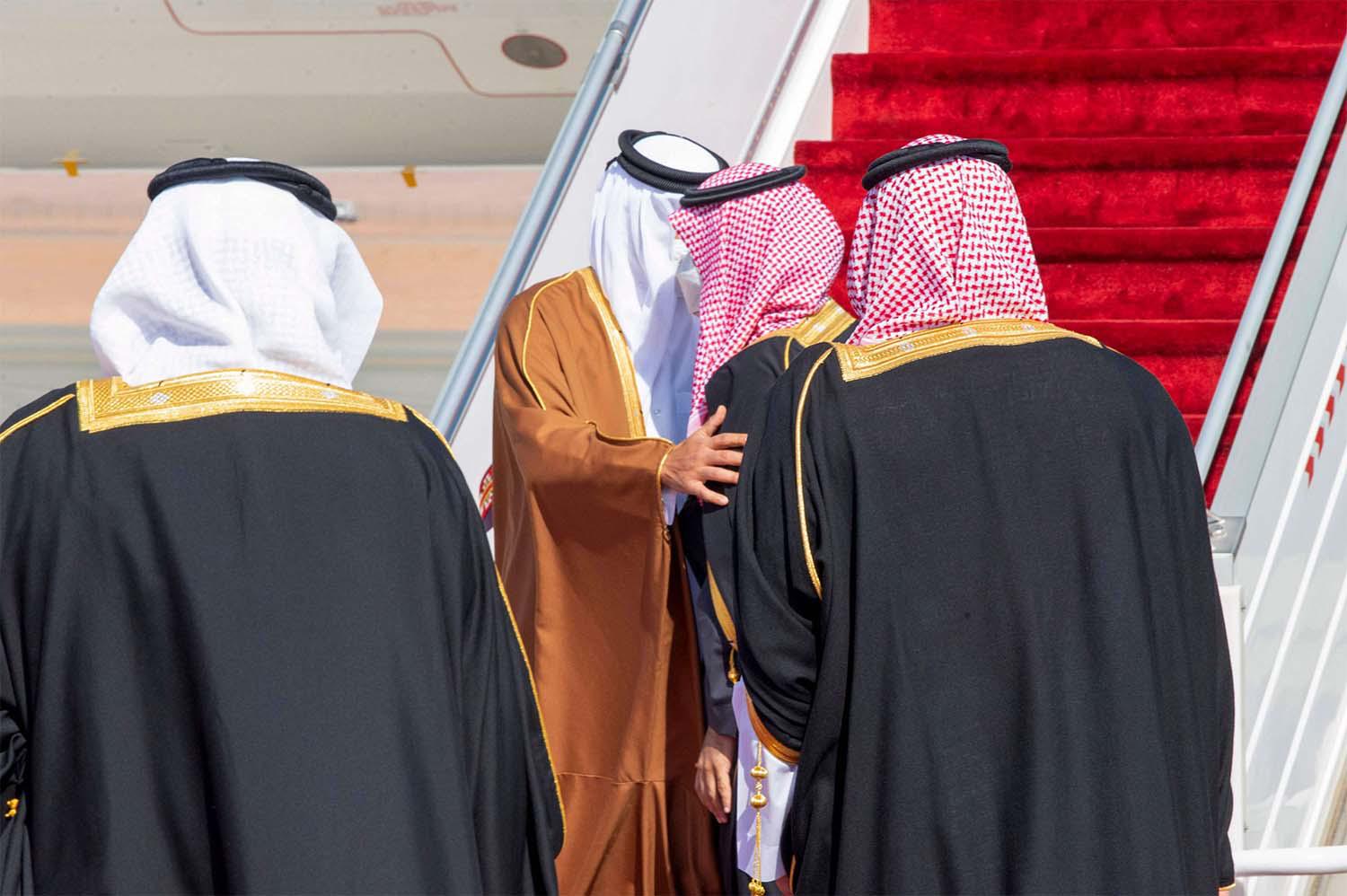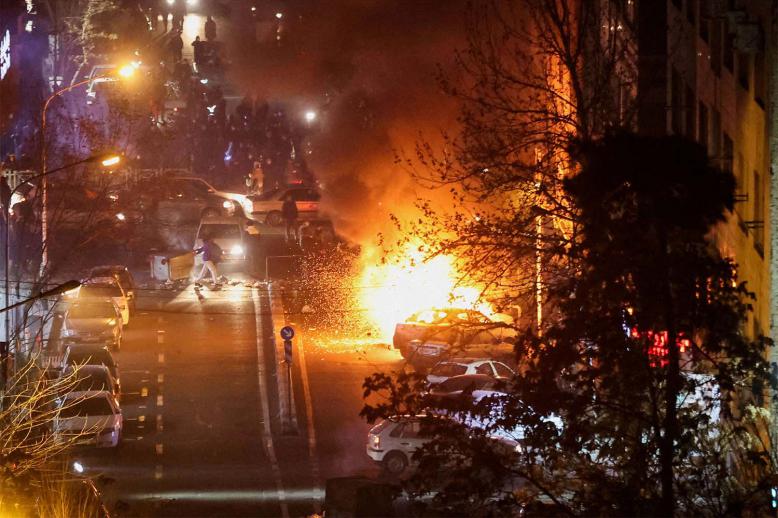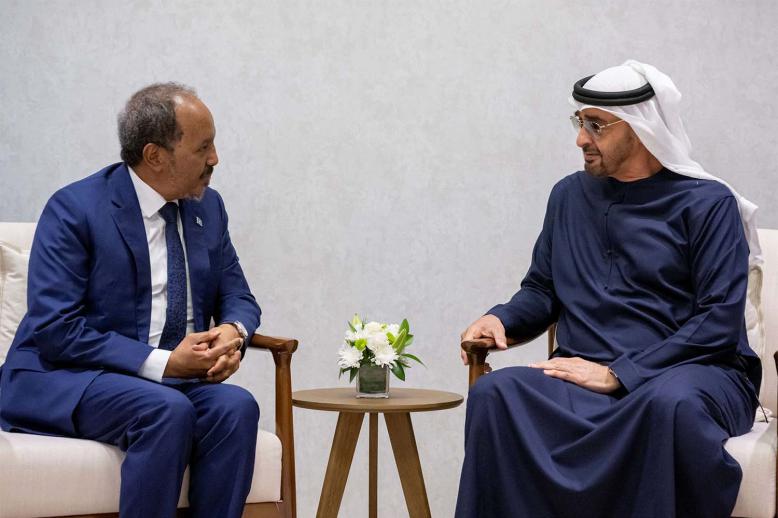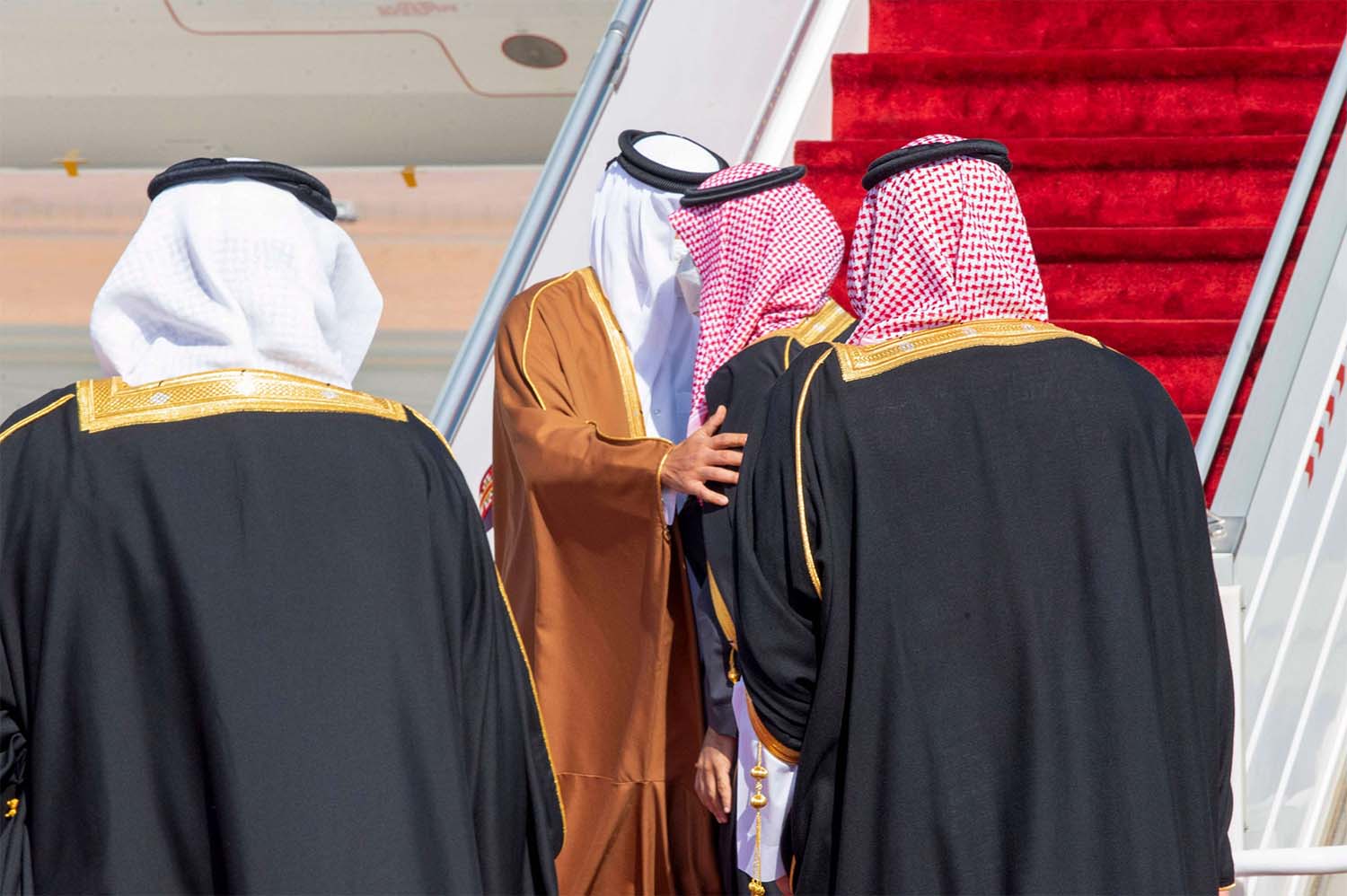Saudi Crown Prince welcomes Qatar ruler with hug
AL-ULA - Qatar’s ruling emir arrived in Saudi Arabia and was greeted with an embrace by its crown prince on Tuesday, following an announcement that the kingdom would end its yearslong embargo on the tiny Gulf Arab state.
The decision to open borders was the first major step toward ending the diplomatic crisis that has deeply divided US defense partners, frayed societal ties and torn apart a traditionally clubby alliance of Arab states.
The arrival of Sheikh Tamim bin Hamad Al Thani in the kingdom's ancient desert city of Al-Ula was broadcast live on Saudi TV. He was seen disembarking from his plane and being greeted with a hug by Saudi Crown Prince Mohammed bin Salman, though both wore face masks due to coronavirus precautions.
The emir is in Al-Ula for an annual summit of Gulf Arab leaders that is expected to produce a détente between Qatar and four Arab states that have boycotted the country and cut transport and diplomatic links with it since mid-2017 over Doha's support for Islamist groups and warm ties with Iran.
The diplomatic breakthrough comes after a final push by the outgoing Trump administration and fellow Gulf state Kuwait to mediate an end to the crisis. It wasn’t until late Monday — on the eve of the summit and just ahead of President-elect Joe Biden’s swearing in — that the decision to end the spat was announced.
The timing was auspicious: Saudi Arabia may be seeking to both grant the Trump administration a final diplomatic win and remove stumbling blocs to building warm ties with the Biden administration, which is expected to take a firmer stance toward the kingdom.
It was unclear what, if any, significant concessions Qatar had made toward shifting its policies. The boycott largely failed to change Doha's regional posture, instead buoying Sheikh Tamim domestically as patriotic fervor swept through Qatar in support of his resolve.
The boycott also pushed Qatar closer to Saudi rivals Turkey and Iran, which rushed to support the ultra-wealthy Gulf state when it faced shortages in medical and food supplies in the first days of the embargo.
Qatar's only land border, which it relied on for the import of dairy products, construction materials and other goods from Saudi Arabia, has been mostly closed since June 2017, when Saudi Arabia, Egypt, the United Arab Emirates and Bahrain launched their boycott of the small but influential Persian Gulf country.
While the Saudi decision to open its airspace, land and sea borders with Qatar marks a milestone toward resolving the dispute, the path toward full reconciliation is far from guaranteed. The rift between Abu Dhabi and Doha has been deepest, with the UAE and Qatar at sharp ideological odds.
The UAE's Minister of State for Foreign Affairs, Anwar Gargash, tweeted late Monday that his country was keen to restore Gulf unity but cautioned: “We have more work to do."
Tuesday's summit is expected to see some form of détente between Qatar and the UAE, Egypt and Bahrain, in addition to a signing ceremony with Saudi Arabia. The meeting in Al-Ula would traditionally be chaired by Saudi King Salman, though his son and heir, the crown prince, may instead lead it.
The Qatari emir has only attended the Gulf Cooperation Council summit once — when it was hosted by Kuwait — since the boycott started. He sent an envoy to the following two summits, held in Saudi Arabia.
This year, Egypt's foreign minister is also attending the summit of the six-nation Gulf Cooperation Council, which comprises Saudi Arabia, the UAE, Bahrain, Kuwait, Oman and Qatar.
The Saudi move toward reconciliation comes just weeks after President Donald Trump's advisor and son-in-law, Jared Kushner, visited the kingdom and Qatar to secure an end to the rift. Kushner has reportedly been invited to attend the signing ceremony in Al-Ula.
This is the first GCC summit since the UAE, Bahrain, Sudan and Morocco announced in rapid succession they would normalize ties with Israel, marking a major shift in regional alliances. It is also the first since the longtime leaders of both Oman and Kuwait died, ushering in a new crop of hereditary rulers. The youngest royals at the summit, however, are Sheikh Tamim, 40, and Crown Prince Mohammed, 35.
Saudi Arabia's decision to end the embargo not only underscores the kingdom's assertion of its heavyweight position among Arab states, but also its regional leadership, which has been at times challenged by the UAE's unilateral and politically shrewd moves.
The kingdom is most concerned with countering Iran, while the UAE's top concern has been blunting any Islamist footprint in the region.
At heart have been shared concerns that Qatar's close relations with Turkey and Iran have undermined regional security. Egypt and the UAE view Qatar and Turkey's support of the Muslim Brotherhood as a security threat and have deemed the group a terrorist organization. Saudi Arabia and Bahrain are primarily concerned with Qatar's close ties with Iran.
Those simmering tensions came to a boil in the summer of 2017, when the four countries cut transport and diplomatic links with Qatar to pressure a change in its policies. The boycotting countries made a list of demands on Qatar that included shuttering its flagship Al-Jazeera news network and terminating Turkish military presence in Qatar, which is also home to a major US military base. Qatar has outright rejected the demands, and has denied support of extremists.
The boycott of Qatar had pitted regional US allies against one another at a time when the Trump administration was working to pressure Iran. It also separated families who’d intermarried with Qataris and ended years of visa-free travel for Qataris in parts of the Gulf.
In a sign that hostilities continue to simmer, Qatar protested to the U.N. Security Council last month that Bahraini fighter jets “violated” Qatari airspace in early December. Bahrain, meanwhile, has accused Qatar's coast guard of arbitrarily detaining dozens of Bahraini fishing vessels.
The conflict in Libya is also a contentious issue, with Egypt and the UAE supporting militias fighting a Tripoli-based bloc backed by Turkey and Qatar.






